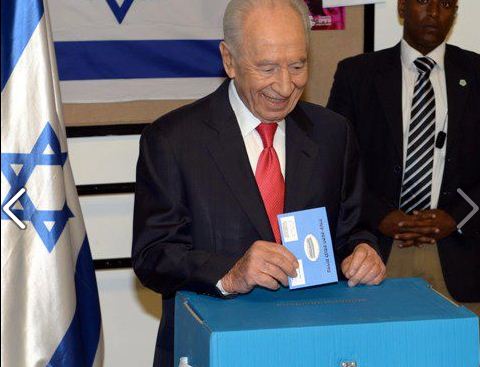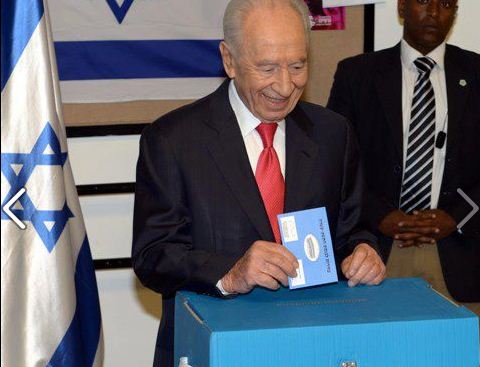Today: Israel Elections 2013
-
-
1/22/2013
-
-

 President Peres Votes
Copyright: GPO
President Peres Votes
Copyright: GPO
|
GovXContentSection
Election day in Israel: More than 4 million Israelis voted in today's elections in approximately 10,000 polling stations stationed all across Israel. 66.6% of eligible voters have cast their ballots, as opposed to 65.2% in the 2009 elections.
Major exit polls results, published by the three major Israeli TV
news channels:
Likud Beytenu: 31
Yesh Atid (Yair Lapid): 18-19
Labor: 17
HaBayit HaYehidu: 12
Shas: 11-13
Meretz: 6-7
Hatnuah (Tzipi Livni): 6-7
Yahadut HaTorah: 6
Hadash: 3-5
Ra'am Ta'al: 3-4
Balad: 2
For more updates and information on the elections:
Earlier today (January 22, 2013) President Peres cast his ballot in Jerusalem. Peres said in a statement: "In 65 years of existence Israel went through seven wars but never lost its democratic freedom. We fought for our survival but never gave up our democracy. Today the state is asking citizens to vote for a free, beautiful, democratic country. You can hesitate over who to vote for, but don't hesitate to vote I wish all the candidates good luck."

( President Shimon Peres, voted in the elections for Israel's 19th Knesset. Photo by: Moshe Milner/GPO
Prime Minister Benjamin Netanyahu cast his vote earlier this morning in Jerusalem. PM Netanyahu visited the Western Wall in Jerusalem, and asked for success in today's elections.
-
-
-
-
-
-
-
-
-
A Guide to Israeli Elections
-
GovXParagraph3
Elections in Israel are based on nationwide proportional representation. The Knesset is elected directly by the voters who vote for a party, The Knesset is elected for a four-year term, although most governments have not served a full term and early elections are a frequent occurrence. Israel has a multi-party system based on coalition governments as no party has ever won a majority of seats in a national election.
-
-
Parties Competing in the 2013 Israel Elections
-
GovXParagraph4
34 parties are competing in the upcoming Israeli national elections to be held on Tuesday, January 22, 2013. Elections to the Knesset are based on a vote for a party rather than for individuals, and the entire country constitutes a single electoral constituency.
The 120 Knesset seats are assigned in proportion to each party's percentage of the total national vote. However, the minimum required for a party to win a Knesset seat is 2% of the total votes cast.
-
-
-
More On the Upcoming Elections
-
-
-